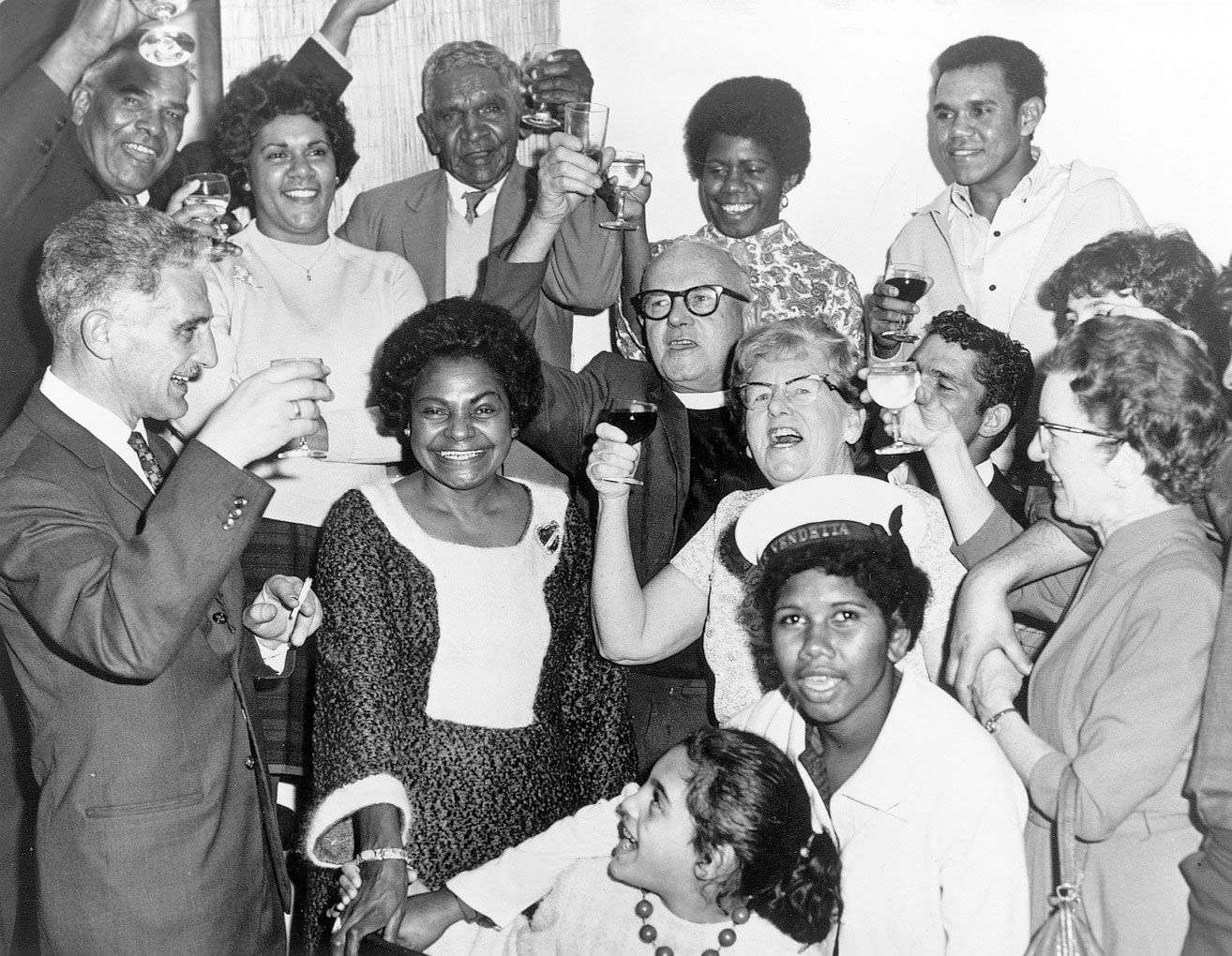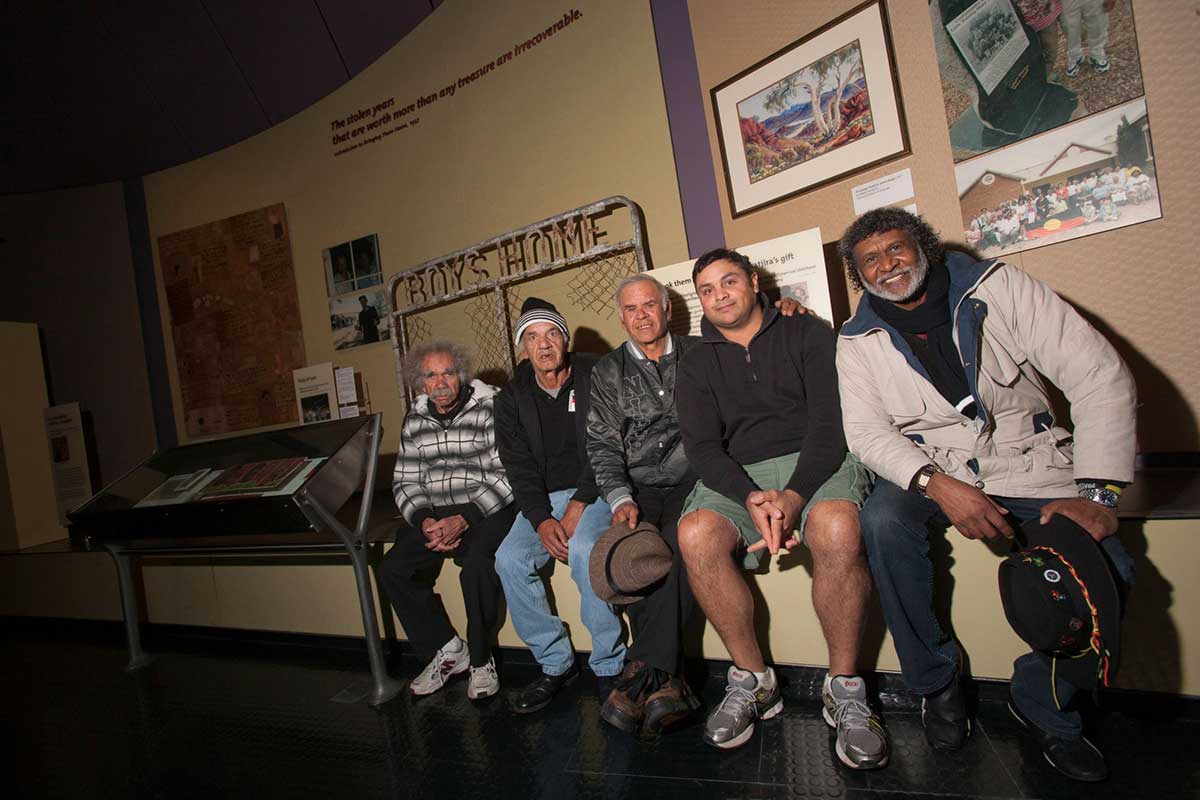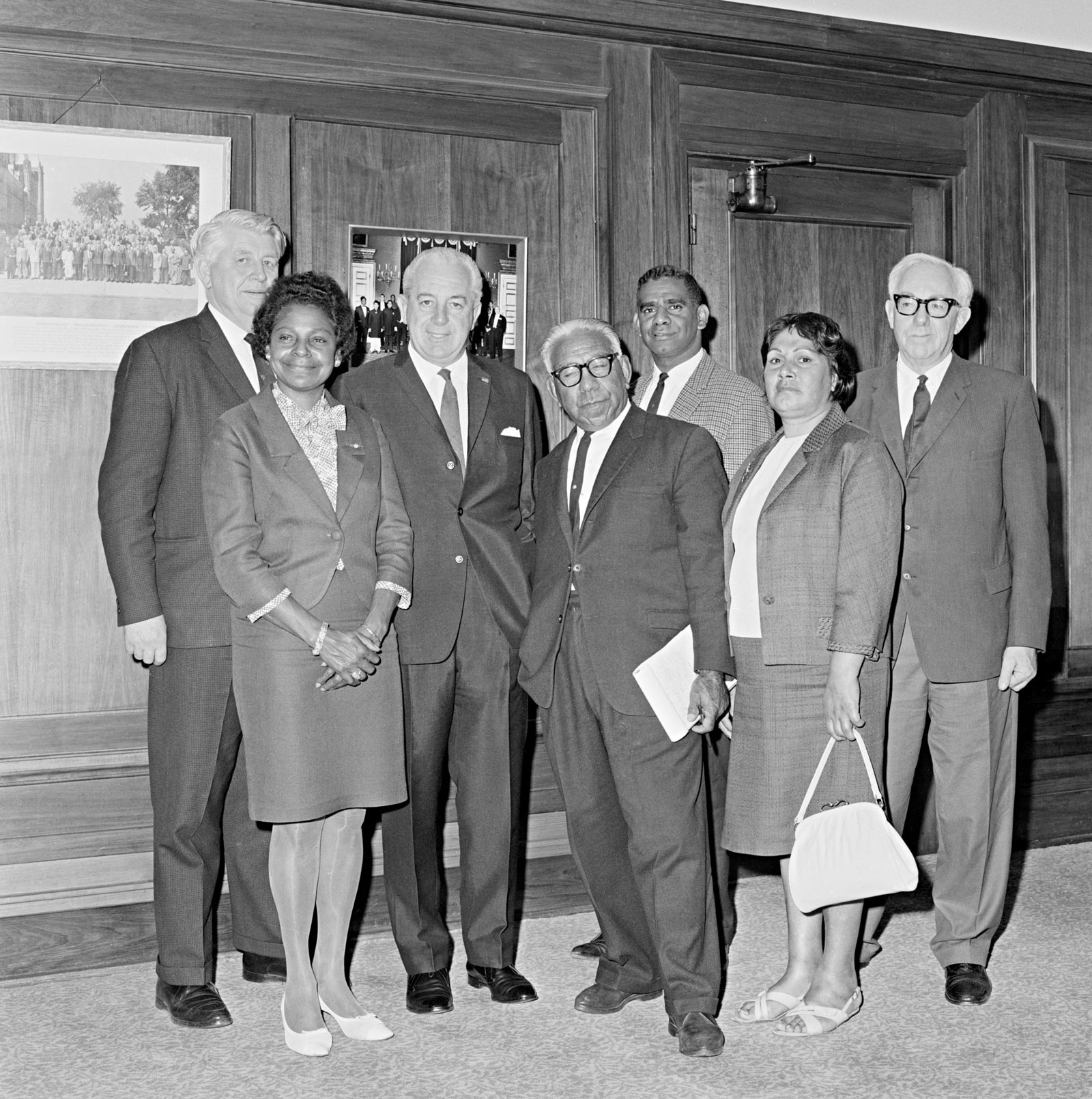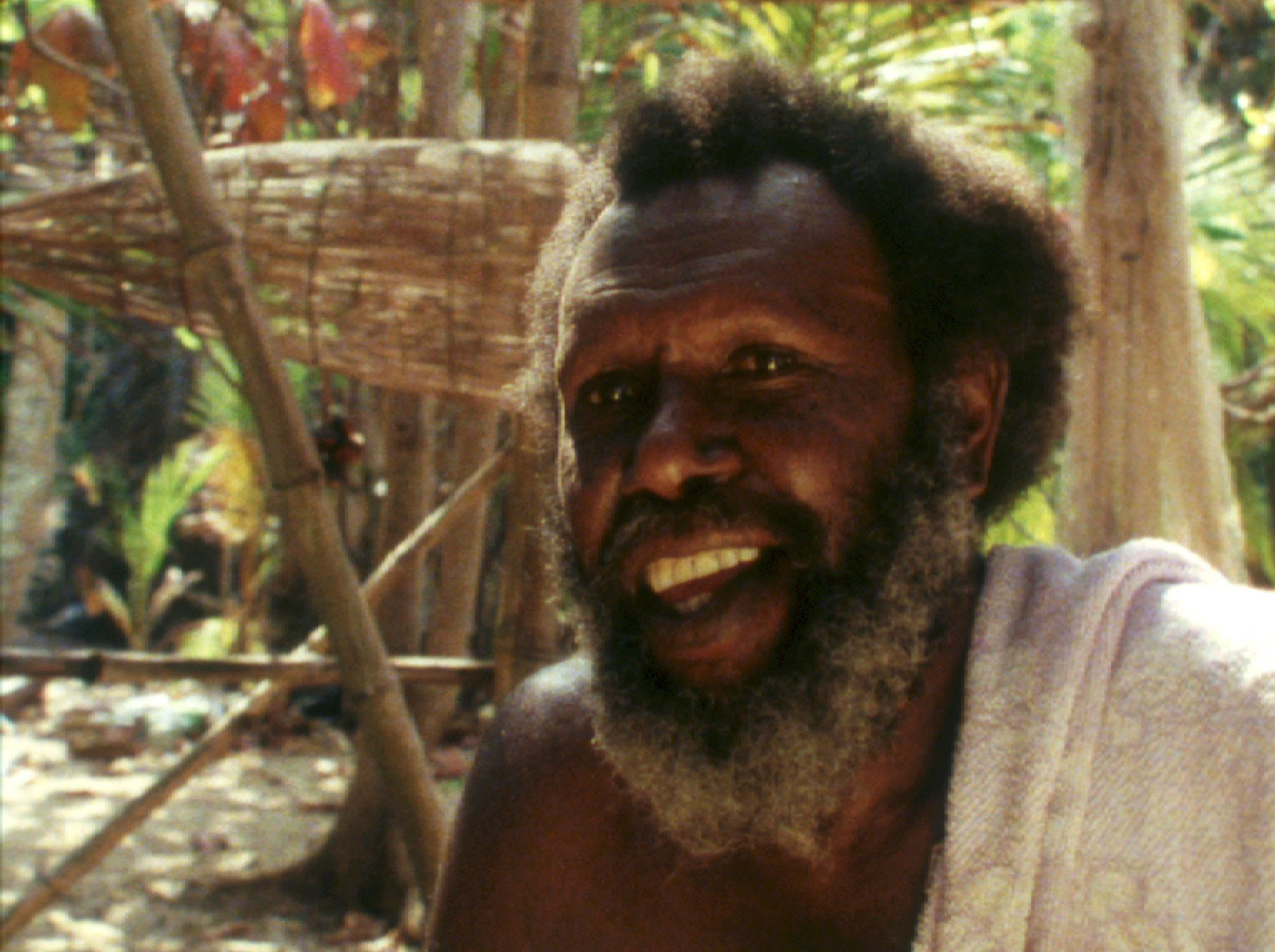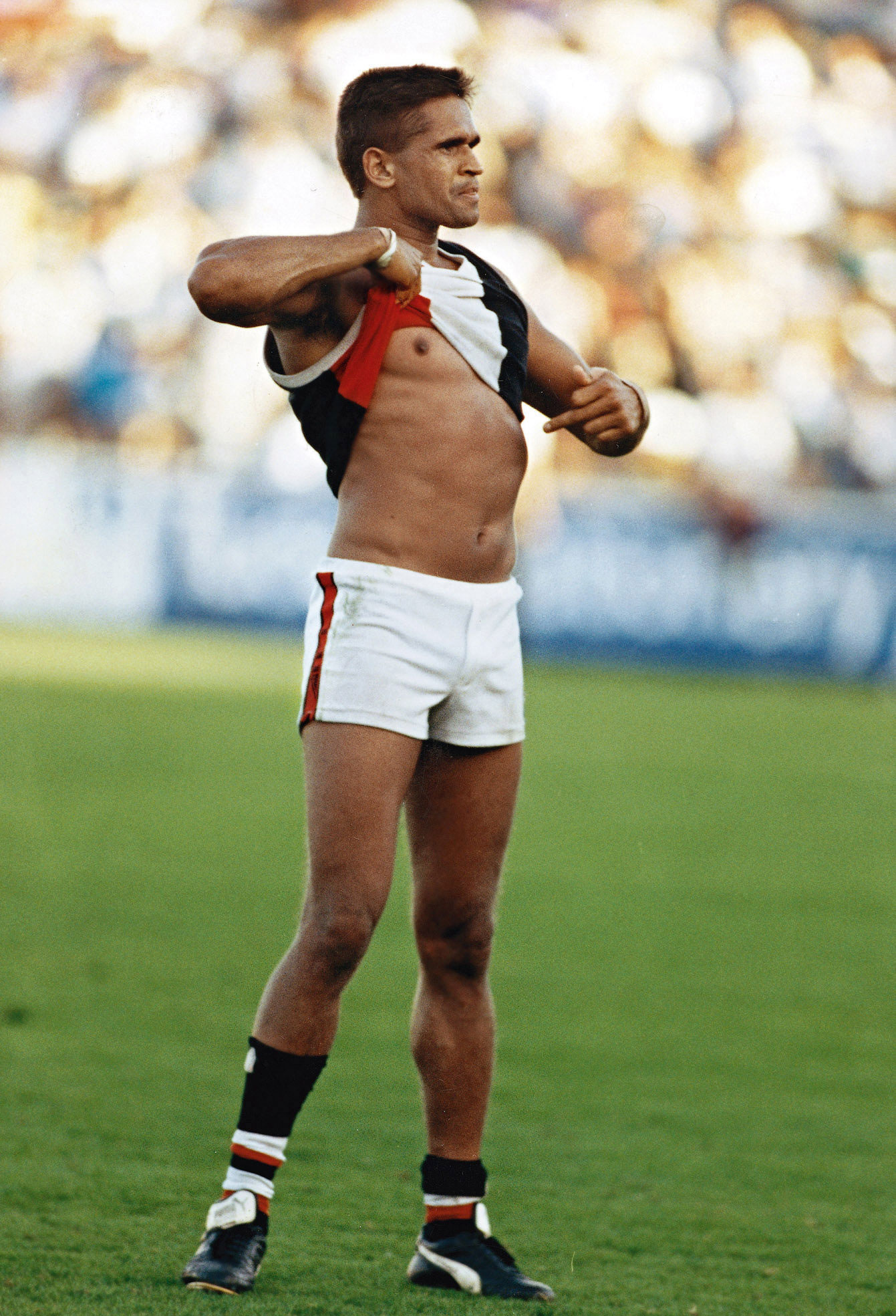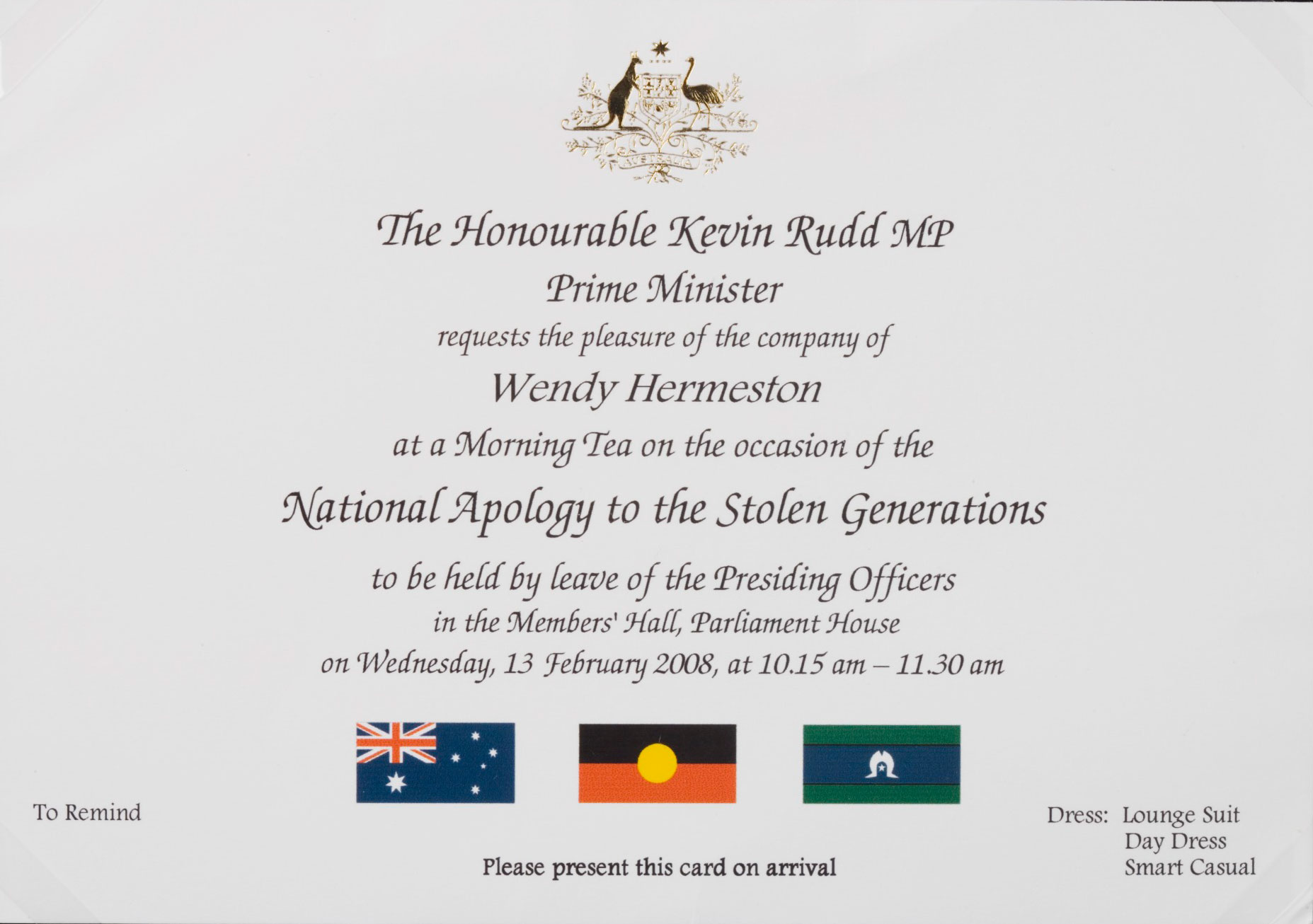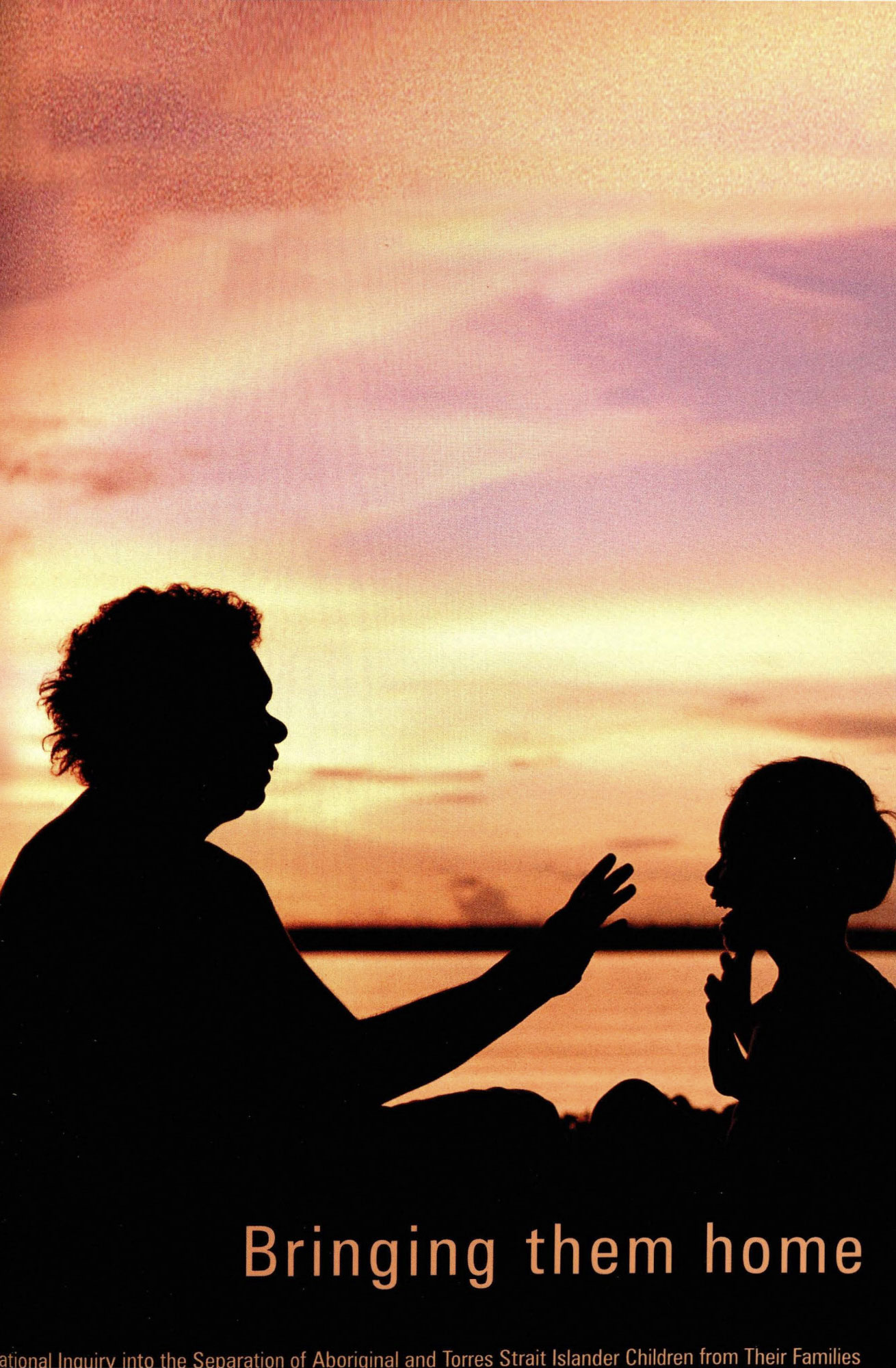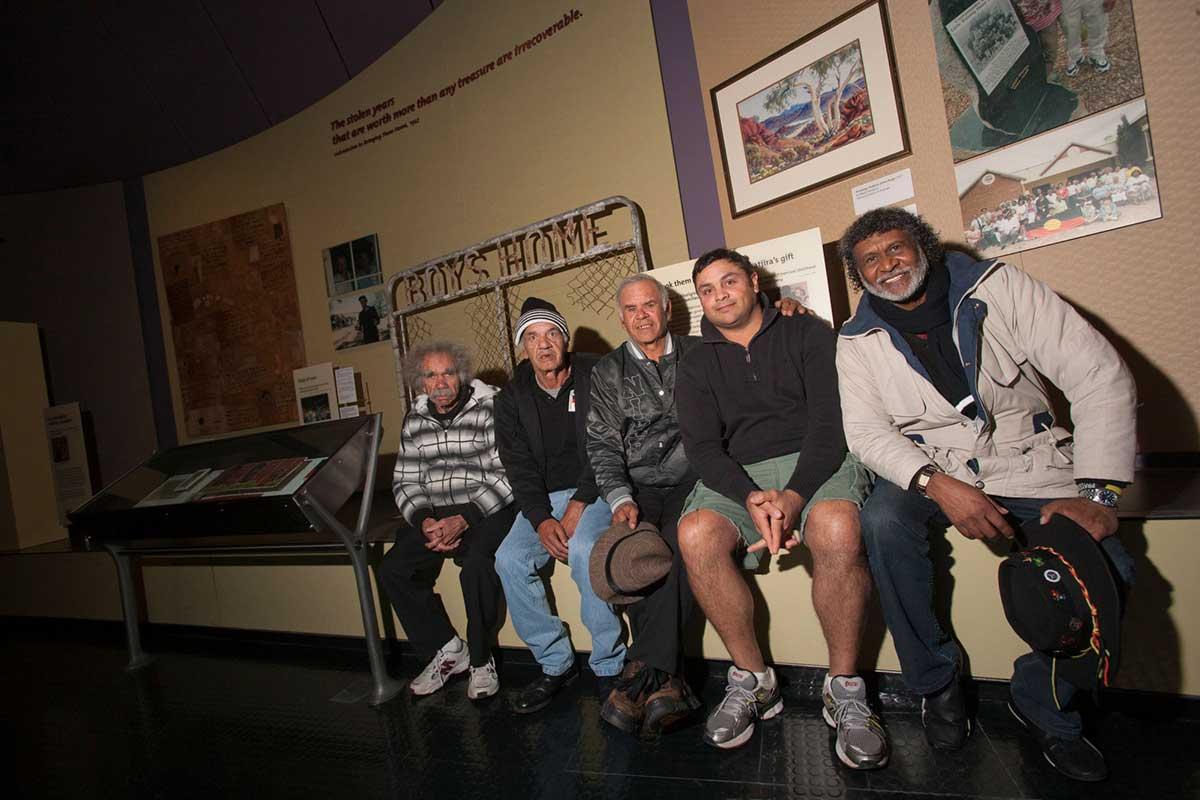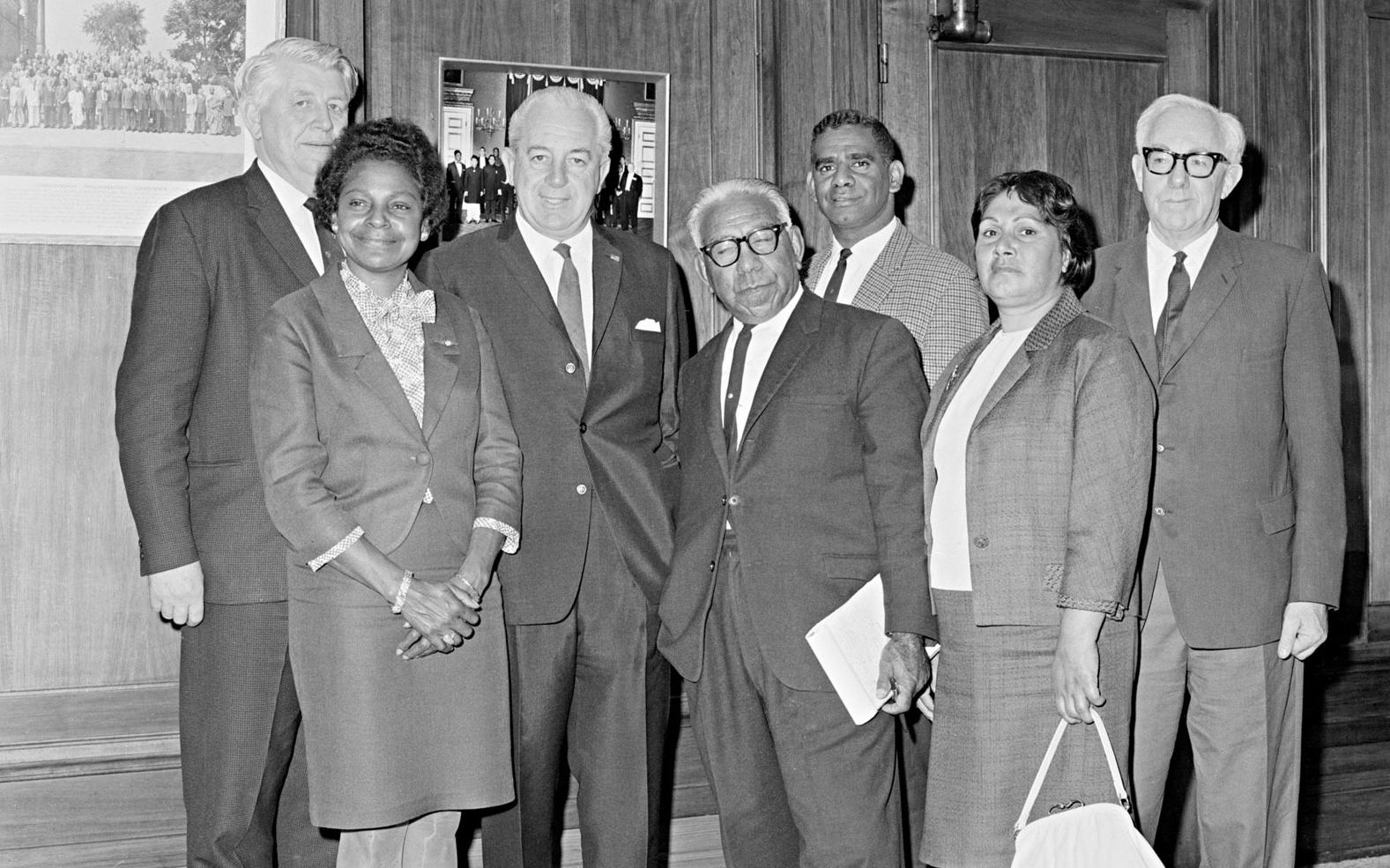Learning module:
Australia since Federation Defining Moments, 1901–present
Investigation 4: The development of Australian democracy and equality: Indigenous rights
4.3 1962 Indigenous Australians’ right to vote
Based on the Defining Moment in Australian history: 1962 ‘Our vote = our future’ — Indigenous Australians granted the right to vote
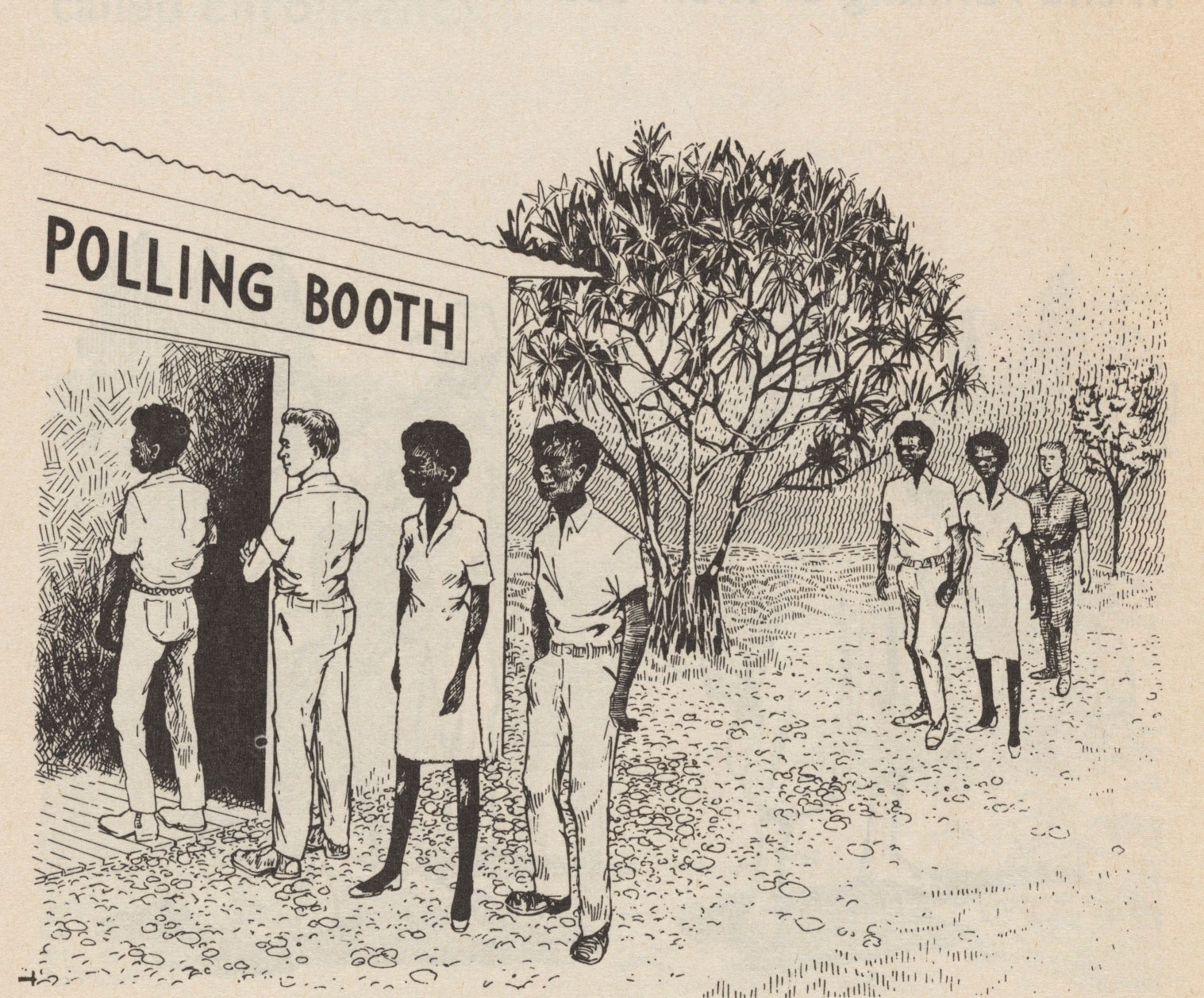
One important part of nationhood and democracy is the right to vote.
Before 1962 only some Aboriginal and Torres Strait Islander men and women had the right to vote. Aboriginal people in some states did have the right to vote, but many were not aware that they had this right.
In Queensland, Western Australia and the Northern Territory, Aboriginal people had fewer rights than other Australians and were treated differently by governments.
Aboriginal people such as Joe McGuinness, Oodgeroo Noonuccal (formerly Kath Walker), Dulcie Flower, Pastor Doug Nicholls, Pearl Gibbs, Faith Bandler and George Abdullah, together with many non-Indigenous people, opposed these restrictive laws and tried to change them.
The Australian Government finally listened to these protests and passed a law, the Commonwealth Electoral Act 1962, that gave all Aboriginal and Torres Strait Australians the right to vote in national elections. In 1965 Queensland was the last state to give Aboriginal and Torres Strait Australians the right to vote in state elections.
Under the Commonwealth Act of 1962 Aboriginal and Torres Strait people had the choice whether to enrol and vote or not. For other Australians enrolling and voting were compulsory.
It was not until 1984 that the Act was amended so that all Australians were treated equally by having to enrol and vote for national elections.






